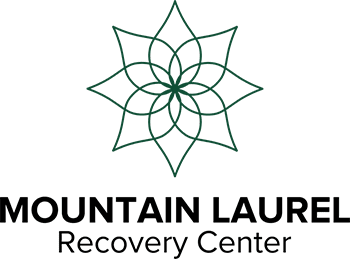
Having goals in recovery can help keep you accountable for your actions, encouraging you to be honest with yourself and clear about what you hope to achieve.
Some examples of achievable goals are:
- Complete a treatment program at a recovery center such as Mountain Laurel Recovery Center
- Stay sober one day at a time; do not look too far into the future or dwell on the past
- Find people you can trust who will support your sobriety, such as a sponsor or sober friend
- Attend a specific number of support group meetings in a certain amount of time, such as 30 meetings in 30 days
- Set time aside each day to meditate
- Improve your health by changing one unhealthy habit at a time
- Add more exercise to your day – the key here is to set incremental goals that fit your lifestyle and schedule
- Repair a relationship that was damaged due to your substance use disorder
- Attend all follow-up therapy sessions you have scheduled
- Read a motivational book
- Return to work or find another job that is conducive to your recovery
Tips for Setting Achievable Goals
Keep goal-setting simple so that it does not create additional stress. You may want to use the SMART goal structure when setting achievable goals. SMART goals are ones that are:
- Specific. A goal should clearly state what it is that you want to achieve.
- Measurable. Find a way to measure the progress you are making toward each goal.
- Achievable. Set realistic goals that are not impossible to meet.
- Relevant. The ones you set should be important to you personally and meaningful in some way.
- Time-bound. Have a set time for completing each goal you set.
There are several tips that can help you with setting goals, such as:
- Write down your goals. It is easier to remember your goals when you see them in writing. You can write them down in a journal or notebook, on a post-it note that you stick to your mirror as a daily reminder, or in an app on your phone.
- Set goals for yourself, not other people. Don’t set goals based on what you think other people want. Instead, set them for yourself and make them the ones you want to achieve. Putting pressure on yourself to meet goals set by others will only set you up for disappointment.
- Keep goals in the present, not too far off in the future. You may want to start with a daily goal, a weekly goal, and a monthly goal. Over time, as you become confident in your ability to meet your goals, you can set some longer-term ones. You can also set small ones that will lead to a bigger goal in the future.
- Don’t make a long list of goals. Setting too many goals at one time can be overwhelming. You may push one goal aside in order to meet another or forget about a specific goal altogether. When you take it one goal at a time, it is more achievable and less stressful.
- Make your goals as specific as possible. When you make a goal as straightforward as possible, it makes it easier to work towards. Clearly define what it is you want to accomplish when setting your goals.
- Your goals are your own, and you can change a goal if it becomes something that you simply cannot meet or is no longer relevant. If you find that you are constantly unable to meet them, consider talking with a sponsor or therapist about what might be blocking you.
- Along the same lines, if you become stuck or have difficulty accomplishing a specific goal, do not hesitate to ask for help. Talking through a struggle you have with a goal can often help you work through it and achieve it.
Are You Struggling with a Substance Use Disorder?
If you or a loved one are struggling with a substance use disorder, you are not alone. The skilled staff at Mountain Laurel Recovery Center is here to help today. We can help you find options to put you on the path to a lasting recovery. To find out more about the programs and services available in our Pennsylvania recovery center, contact us online for a confidential consultation.
